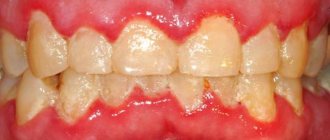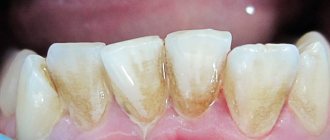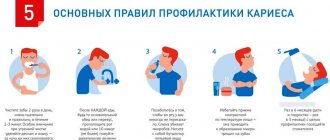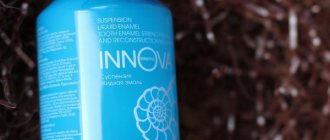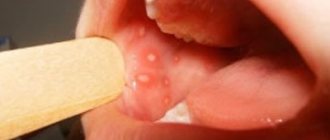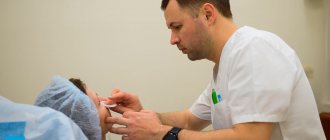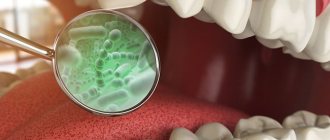From some works of classical literature it is known that in the Middle Ages, people usually lost most of their teeth by the age of 30-40. And today, in some regions of the world, representatives of the local population often cannot demonstrate a “Hollywood smile.” This is due to unbalanced, inadequate or poor nutrition. Thus, many indigenous residents of the Far North, not yet reaching old age, lose almost all their teeth (due to the predominance of heavy meat, fatty and canned foods in the diet and an acute lack of fresh fruits, vegetables, vitamins and minerals). Fortunately, modern types of prosthetics are currently available to a person with a normal average income, and most Russians in need can get new teeth to replace lost ones.
At the same time, everyone, by eating right and properly caring for the oral cavity, can preserve intact and beautiful teeth as much as possible from a young age. To achieve this, it is better to completely avoid some foods, others should be consumed in minimal quantities, and others should be given preference by including them in the daily diet.
What foods and drinks should you limit to keep your teeth healthy?
It is worth minimizing the consumption of certain types of food. These include, first of all, sweets, primarily non-natural (produced by the confectionery industry), soft ones that do not require chewing effort, as well as sticky and stringy ones. Sugar present in the oral cavity accelerates the proliferation of pathogenic bacteria. Many sweets stick to teeth, which contributes to tooth decay. Sugar-containing carbonated drinks and chewing gum are especially harmful to the oral cavity.
A large amount of red meat, fatty and fried foods contribute to the intensive proliferation of pathogenic bacteria in the oral cavity. Foods rich in acids that corrode tooth enamel should be eaten with caution. These include some citrus fruits, fruits, juices, marinades, and some canned foods.
You should consume less drinks and foods with a lot of caffeine, which removes calcium from the body. If you are used to eating a lot of chocolate, drinking strong tea or coffee (they, by the way, darken tooth enamel), then you should consume more foods high in calcium.
Natural sugar substitute
Honey is beneficial for the entire body as a whole, as it has nutritional, bactericidal, preservative, analgesic, anti-inflammatory and expectorant properties. Honey is easily absorbed by the body and can prevent many diseases. But not many people know that, despite the fact that this bee product is very sweet, it does not spoil the teeth, but rather has a positive effect on the gums, teeth and oral mucosa. The main thing is not to overdo it with your daily honey consumption.
Doctors even recommend replacing sugar with honey, since sugar not only destroys teeth, removing calcium from the body and promoting the development of caries, but also leads to the proliferation of bacteria harmful to the oral cavity. The fluoride contained in honey helps to avoid these negative consequences, strengthen teeth, prevent caries and disinfect the oral cavity. According to experts, bacteria have virtually no chance to settle on the teeth and begin to destroy them.
However, when replacing sugar with honey in tea, for example, it is worth paying attention to the fact that when heated to temperatures above 40°C, it loses its beneficial properties. It is better to pour hot tea into a cup, wait 5-7 minutes and only then add natural sweetness to it. Honey goes best with herbal tea.
What measures should be taken to maintain dental health during and after meals?
It is necessary, if possible, to avoid snacking between meals, since tooth enamel can be restored during those few hours when a person does not eat anything. In addition, you should not eat too cold or too hot food, especially dishes that contrast with each other in temperature, to prevent the formation of microcracks in the enamel. What you eat must be chewed thoroughly and intensively. Avoid foods that are too hard and require effort to chew. Juices should be drunk through a straw. Acid-containing fruits and citrus fruits are best chewed and swallowed quickly.
After meals, you can use chewing gum in which the sugar is replaced with dental-safe sweeteners (for example, xylitol). When consuming seeds, baked goods and confectionery products containing them, as well as corn in any form, you cannot do without a toothpick. After each consumption of sugar-containing and acidic foods, it is necessary to thoroughly rinse the mouth with water or a special elixir or brush your teeth.
The benefits of honey
The composition of the bee product is rich in useful components. The vast majority of them are calcium. It is this component that is responsible for the strength of bones.
The phosphorus contained is suitable for whitening, and fluoride is the main protective agent against the destruction of hard dental tissues.
This product is also not deprived of useful vitamins:
- vitamin A. It is necessary for smooth tooth enamel and also helps eliminate bleeding gums.
- vitamin D. It helps absorb calcium and phosphorus.
- vitamin C. It is necessary for bone regeneration.
What should you eat to keep your teeth as healthy as possible?
Give preference to raw vegetables and hard fruits such as carrots, cabbage, radishes, apples, and bell peppers. They train your gums and cleanse your teeth of plaque.
For dental and oral health in general, all foods that contain significant amounts of calcium, fluorine, zinc, iron, magnesium, phosphorus, vitamins A, K, D, B6, B9, B12, E and C, protein, arginine, casein and phosphates, Omega-3 polyunsaturated fatty acids, antioxidants. It is advisable to regularly consume greens (for example, dill, celery, parsley, cilantro), leafy vegetables (lettuce, spinach and others), nuts, seeds, whole grains, chicken eggs, garlic, ginger, cheese, cottage cheese, yogurt, white meat , lean beef, fish, shrimp, legumes (soybeans, lentils, beans), mushrooms, buckwheat, oats, raisins, wholemeal and bran bread.
You can moderately consume natural sweets, for example, honey (it is better to eat it with honeycombs, chewing which improves the condition of teeth and gums). You should also eat dried fruits. They are rich in vitamins, contain natural (unrefined) saccharides, and chewing them is good for your teeth. Fresh berries and fruits that are good for teeth include rose hips, strawberries, grapes, cherries, currants, peaches, plums, and pineapples. Unsweetened green tea, especially consumed after meals, is also beneficial for the oral cavity, as it contains polyphenols and fluorides, destroys many pathogens, inhibits the growth of bacteria, neutralizes acid, prevents tooth loss and reduces gum inflammation.
Plant products containing anthocyanins (for example, cranberries, blueberries, raspberries, red cabbage, eggplant, black rice) prevent the appearance and development of pathogens on teeth. Fermented milk products, due to the content of probiotics in them, prevent the proliferation of pathogens in the oral cavity.
We can conclude: maintaining dental health by eating right is not difficult. Unfortunately, many people from childhood ate the wrong things and the wrong things, which caused various dental problems. If your teeth are significantly damaged, partially or completely lost, prosthetics made using one of the advanced techniques will return you to the ability to eat without difficulty or inconvenience.
Benefits of comb honey for teeth
Honey is especially beneficial when consumed in honeycombs. Honeycomb is a natural honey package that includes a wide range of vitamins and natural antibiotics. When consuming honey along with honeycombs, wax and propolis also enter your body - the most valuable beekeeping products, which, among other things, have a beneficial effect on teeth. With regular chewing of honeycombs, the wax cleans not only the teeth, but also the tongue and gums. For gum diseases, comb honey is extremely useful, since the wax gently massages the gums, and honey has a healing effect on small wounds and cracks that cannot be seen with the naked eye, but which will nevertheless bother you. Honey also has disinfectant properties necessary for such diseases. Thanks to wax, blood circulation in the gums improves, due to which the tissues that hold the teeth become stronger, and, consequently, the teeth become stronger.
As for the propolis contained in comb honey, back in 1953 it began to be used in dental practice to anesthetize the hard tissues of teeth and soft tissues of the oral cavity. Propolis is an excellent remedy for local anesthesia. P.I. Prokopovich noted that in terms of its anesthetic properties, this product is 52 times superior to novocaine and 3.5 times superior to cocaine. Therefore, if you have a toothache, just chew honeycomb honey for a while, trying to keep it in your mouth longer, and the pain will begin to subside.
special instructions
To determine whether stomatitis can be treated with honey or not, it is first necessary to conduct a classic allergy test. To do this, apply a small amount of nectar to your hand. The optimal place is the inside of the elbow. If after half an hour no discomfort appears, then recipes with honey can be used.
When pure honey is applied to wounds, unpleasant sensations may appear, such as mild pain, burning or even itching. If you cannot tolerate this condition, then you should rinse your mouth with an antiseptic or a pure chamomile decoction. If the pain is unbearable, then these procedures should be abandoned.
For toothache
If a person has a severe toothache, then you can take honey and cinnamon in equal proportions, grind the mixture and apply it to the sore spot.
For fungal infections of the oral cavity, it is necessary to prepare a special “honey solution”; to prepare it, you need to take 100 grams of honey and 50 ml of water and put it on fire, and you must not forget to collect the foam. You should also add 50 grams of rose petals there. They should first be soaked in sugar water, boiled for another hour over low heat, removed and strained. This remedy helps with stomatitis, just store it in the refrigerator. In addition, this solution will also help with sore throat.
Medicinal chamomile has an antiseptic, antispasmodic, and anti-inflammatory effect. To prepare the solution you need to take 3 tbsp. l. chamomile flowers and 0.5 liters of boiling water. Pour water over the flowers and place in a water bath for 15 minutes. Afterwards you need to strain, cool and add a few tbsp. l. honey.
Stomatitis
Aloe in combination with honey gives very good results in the treatment of stomatitis. You can prepare an ointment at home.
To do this, you need to cut off a few aloe leaves, wrap them in a bandage or gauze, and put them on the bottom shelf in the refrigerator for a day. After a day, you need to squeeze the juice out of the plant. Add honey to it in a ratio of 1 to 2 and mix everything thoroughly. The product is ready for use.
The mixture should be applied to a cotton pad, which should be used to carefully treat dental ulcers. If the mixture is made for a child, then it is necessary to explain to him that he should not lick the wounds for 2-3 minutes. You can also make lotions. If the child can already rinse his mouth on his own, then prepare a solution: 2 tsp. dilute the mixture with 200 ml of warm water. The mixture must be used up to 5 times a day.
“ASSESS THE BENEFITS AND RISKS RATIO”
For some diseases, vaccination may pose a risk, according to the instructions for Sputnik V. However, coronavirus can often cause even greater harm to such patients. Therefore, “the decision to vaccinate should be based on an assessment of the balance of benefit and risk in each specific situation,” the document notes. This careful assessment should be carried out before deciding to vaccinate for:
— cancer patients;
- patients with autoimmune diseases.
In the latter case, stimulation of the immune system can lead to an exacerbation of the disease, the instructions emphasize. Great care should be taken in patients “with autoimmune pathology that tends to develop severe and life-threatening conditions.”
And one more important point. Patients who receive immunosuppressive therapy, that is, suppress the immune system (cancer patients, people who have undergone organ transplants, with autoimmune diseases, etc.), may not develop a sufficient immune response, the authors of the instructions warn. Therefore, taking drugs that suppress the function of the immune system is contraindicated for at least one month before and after vaccination. Only the attending physician can make a decision about adjusting medication intake.
STAY IN TOUCH
What else is important to know
Here are a few more important points from the document entitled “Standard Operating Procedure: Procedure for Vaccination against COVID-19 with the EpiVacCorona Vaccine in Adults”:
— On the day of vaccination, the doctor conducts a survey and examination of the patient with mandatory thermometry. At temperatures above 37 °C, vaccination is not carried out.
- Patients receiving immunosuppressive therapy (that is, drugs that suppress the immune system) and patients with immunodeficiency may not develop an adequate immune response.
— If the patient has had contact with COVID-19 patients within the last 14 days or if there are symptoms of infection during this period, a referral is issued for a PCR test for COVID-19 or for a rapid test for the presence of coronavirus SARS-CoV-2 (clause 7.3.2 of the document ).
— Those who have recovered from COVID-19 and persons who have positive test results for the presence of immunoglobulins (that is, antibodies) of classes G and M to the SARS-CoV-2 virus are not vaccinated (clause 7.3.3 of the document).
Rules for using honey for teeth
The benefits of honey for dental treatment have been proven by scientific medicine. To get the maximum benefit from the product, you must follow a number of simple rules:
- Do not allow honey to become too hot;
- It is not recommended to keep the honey product in direct sunlight.
- For storage it is best to use a dry and dark place. The ideal storage temperature is 5 to 10 degrees above zero.
- The dishes should be either wooden or glass.
- You should also avoid contact with metal.
How to protect your teeth?
To protect your mouth from dental diseases, you need to consume honey correctly. We bring to your attention a few rules:
- You should brush your teeth several times a day - morning and evening.
- After each meal, it is advisable to rinse your mouth with warm water.
- Throughout the day, you need to drink enough water so that saliva constantly washes the surface of the enamel.
- Your toothbrush needs to be changed every 3 months, otherwise bacteria will accumulate on the bristles.
